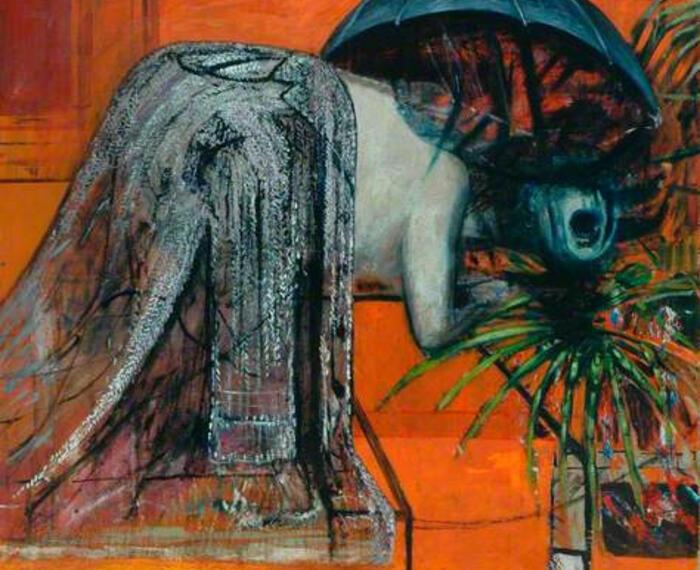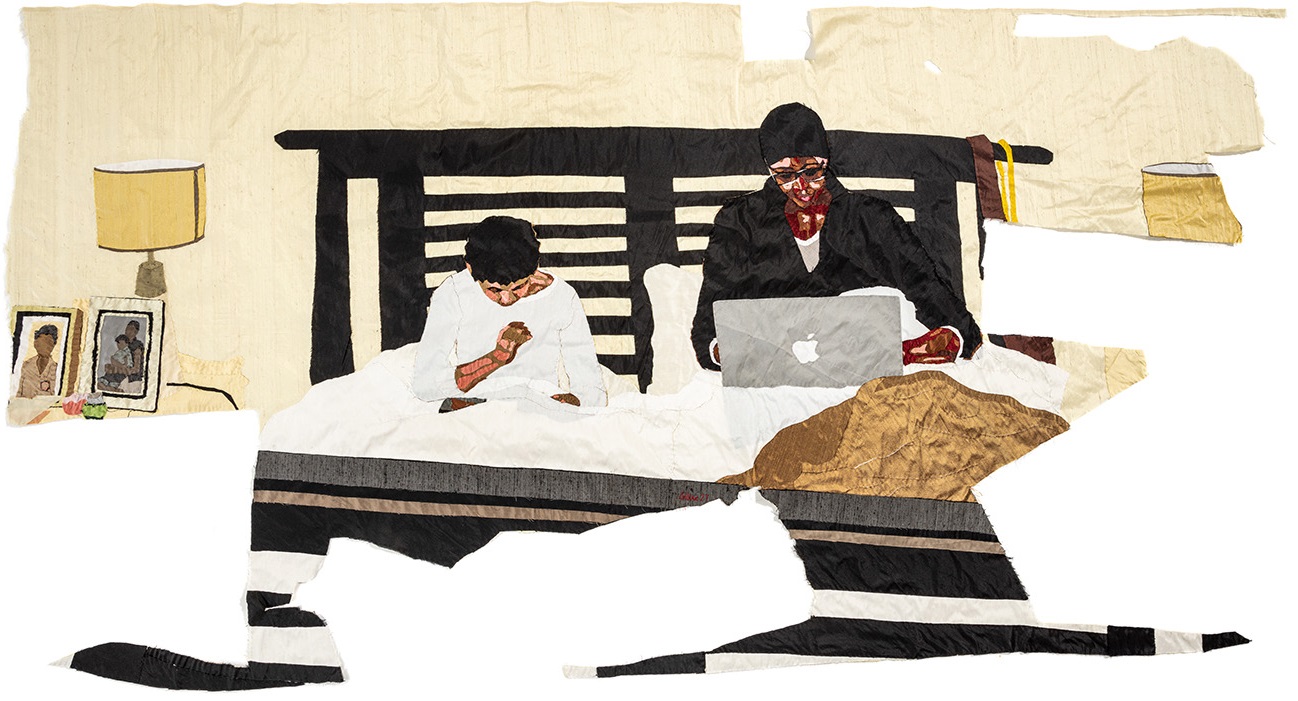


Black femininity, everyday domesticity, motherhood and everyday acts of unconditional love and self-care are at the centre of Billie Zangewa’s autobiographical practice. Based in Johannesburg, South Africa, the artist sources raw silk from fabric shops and creates layered hand-sewn wall hangings on her kitchen table. Often leaving the edges of her fragile collages incomplete, the viewer is invited to finish the narrative of her deeply personal, yet universal stories. Zangewa was introduced to needlework and embroidery through her mother and her depictions of contemporary life in a globalised society build on century old textile traditions passed down by generations in South Africa.
After the birth of her son, the now 48-year-old artist began creating her well-known domestic interiors that mark a shift in focus from self-examination and femininity in her twenties to motherhood and daily rituals in the home environment.
Her first solo show with Lehmann Maupin in London is called Running Water, the name inspired by lyrics from the Neville Brothers’ song Sons and Daughters (1990). Zangewa has created new works that are inspired by a new-found appreciation for family, labour and ritual that resulted from living and working as a single mother in isolation with her eight-year-old son during the Covid-19 pandemic.
Her collages presented at Cromwell Place thematise seemingly mundane aspects of the artist’s daily life: in In Times of Trouble (2021) Zangewa shares an intimate scene with her son Mika with the viewer. Mother and son both sit comfortably and in harmony together in bed, lost in their separate activities on their electronic devices. Body and Soul (2021) reflects moments of solitude, showing the artist meditating in her garden, which is one of her daily rituals. Whatever it Takes (2021) refers to the simple act of putting on and removing her shoes each day. The work functions as a representation of the labour, support, routine, and comfort that work shoes are often symbolically imbued with, as well as connoting the artist’s rigorous commitment to continuing to make work amidst the challenges she faced in her day-to-day life during Covid.
In Out and About (2021) we can see the artist reclaiming the environment beyond her home after lockdown. It is a self-portrait on a street in San Francisco, inspired by a visit to the US when she opened her solo show at the Museum of the African Diaspora last month.
A parallel exhibition, titled Flesh and Blood is running in Lehmann Maupin’s Seoul space. It illustrates the importance of family and friends particularly during the difficult and deeply emotional period of lockdown. This exhibition includes Sweetest Devotion (2021), which the Contemporary Art Society acquired through the Collections Fund at Frieze for the Harris Museum in Preston this year. It shows Zangewa’s son Mika with his uncle, whom the artist described as a source of strength during lockdown, when her brother lived with them over that period.
Together, both exhibitions at Lehmann Maupin in London and Seoul offer different perspectives on domestic life during lockdown—the communal and the intimate. Zangewa’s new body of work offers an opportunity for the viewer to reflect on their own life, particularly how our habits, relationships, and day-to-day life has changed since the beginning of the pandemic.
Zangewa’s often bright and colourful collages, in which she appears as a (domestic) heroine, can be read as a sign of hope and an offering of love for oneself, one’s family and friends, and the wider human community.
While the familiarity of everyday events can seem simple and mundane, her work speaks to the fundamental importance of women’s labour and feminist perspectives in a globalised society. Zangewa, who began her career in fashion and advertising industries says: “I never realised how political it was to talk about the intimate life of a Black woman”. Last but not least however, Zangewa’s figurative compositions explore Black female identity and strongly challenge the historical stereotype, objectification, and exploitation of the Black female body.
Christine Takengny
Curator
Lehmann Maupin, 1 Cromwell Place, London SW7 2JE. Open Wednesday to Saturday, 10.00–18.00. Exhibition continues until 8 January 2022. www.lehmannmaupin.com